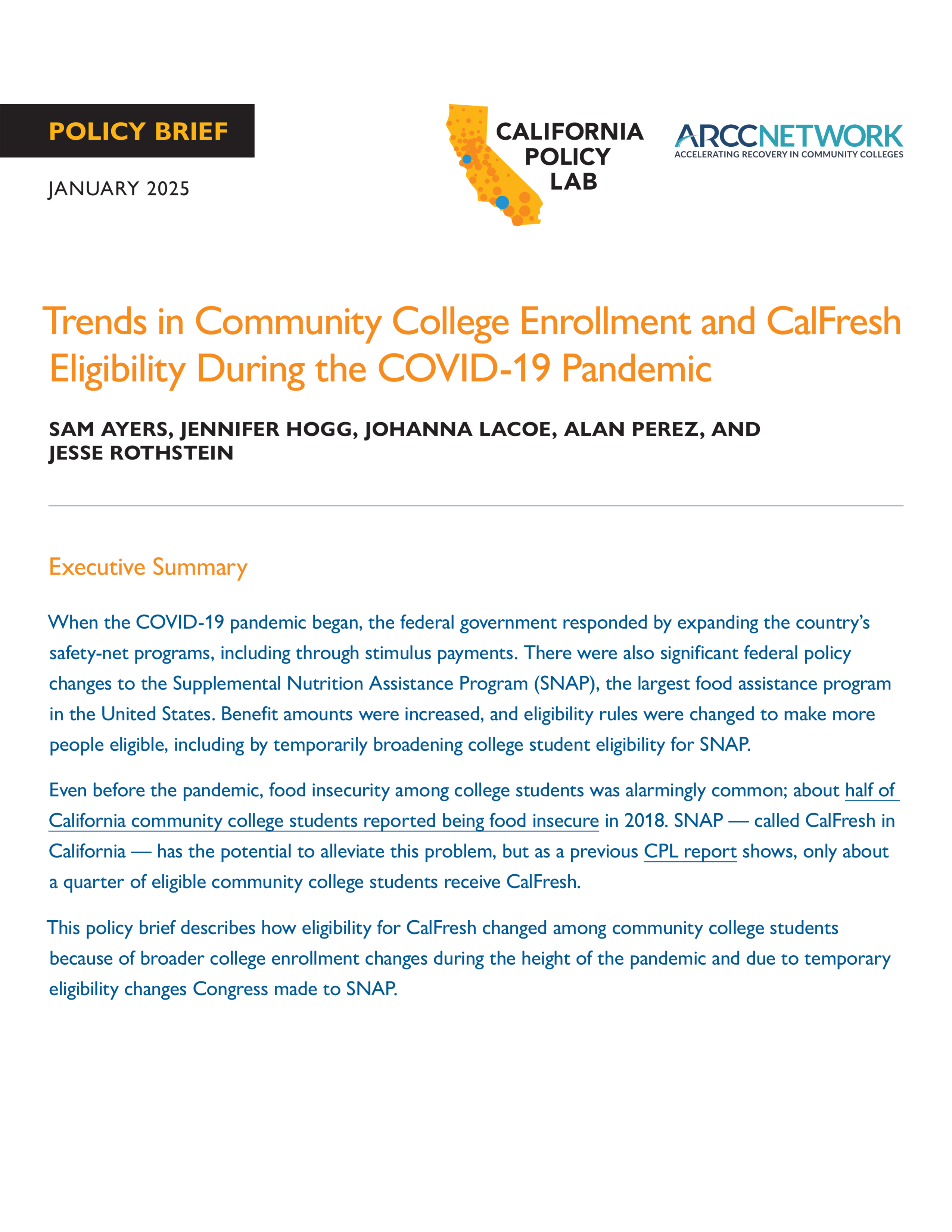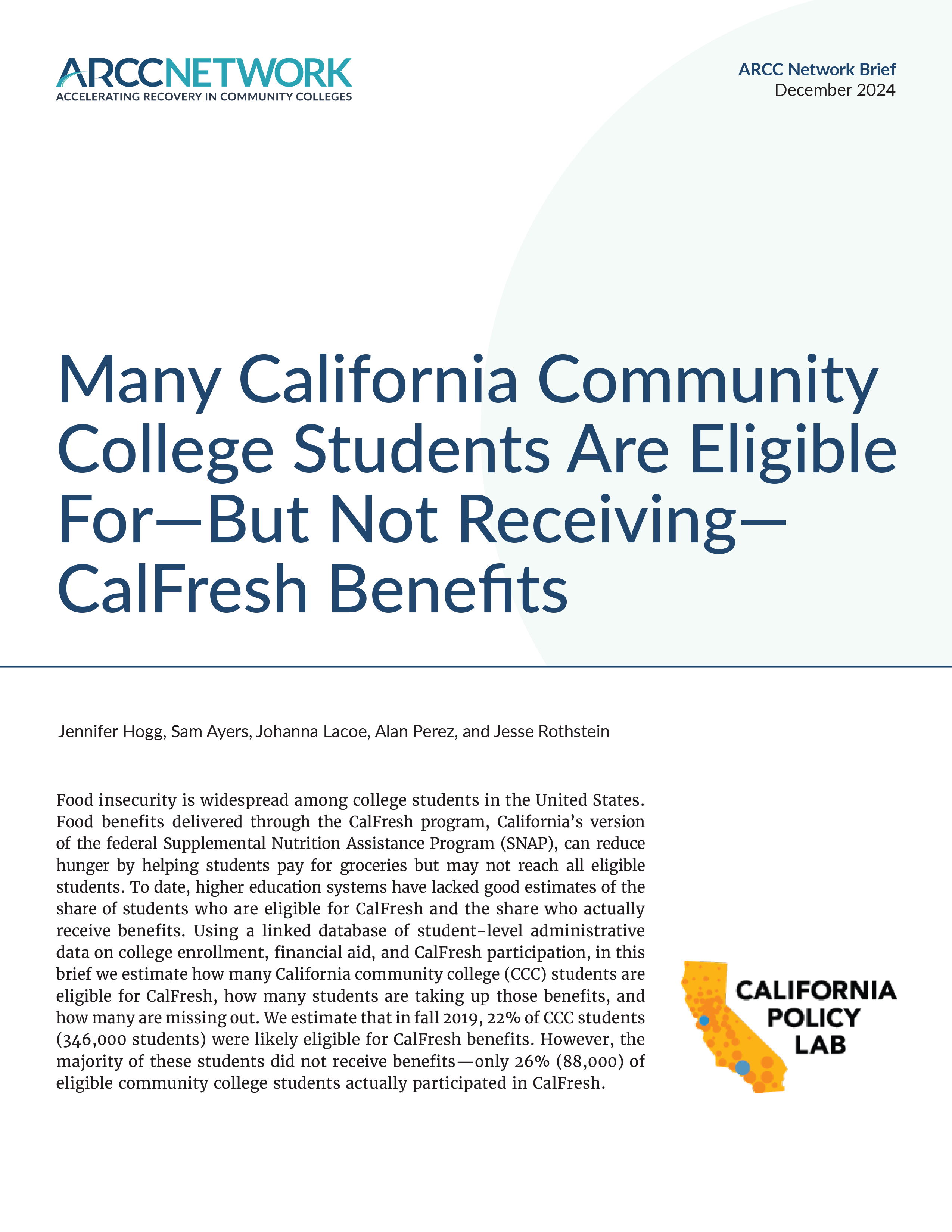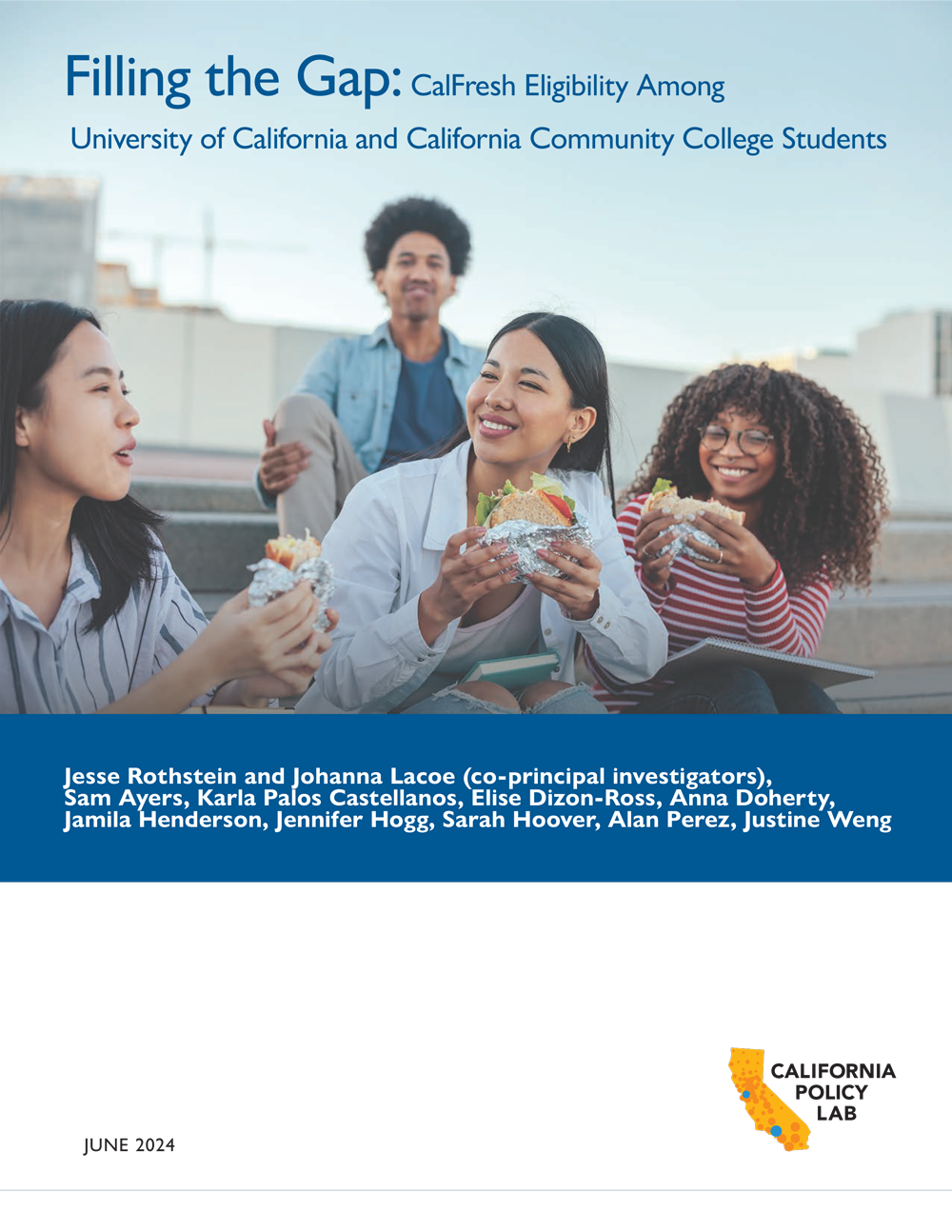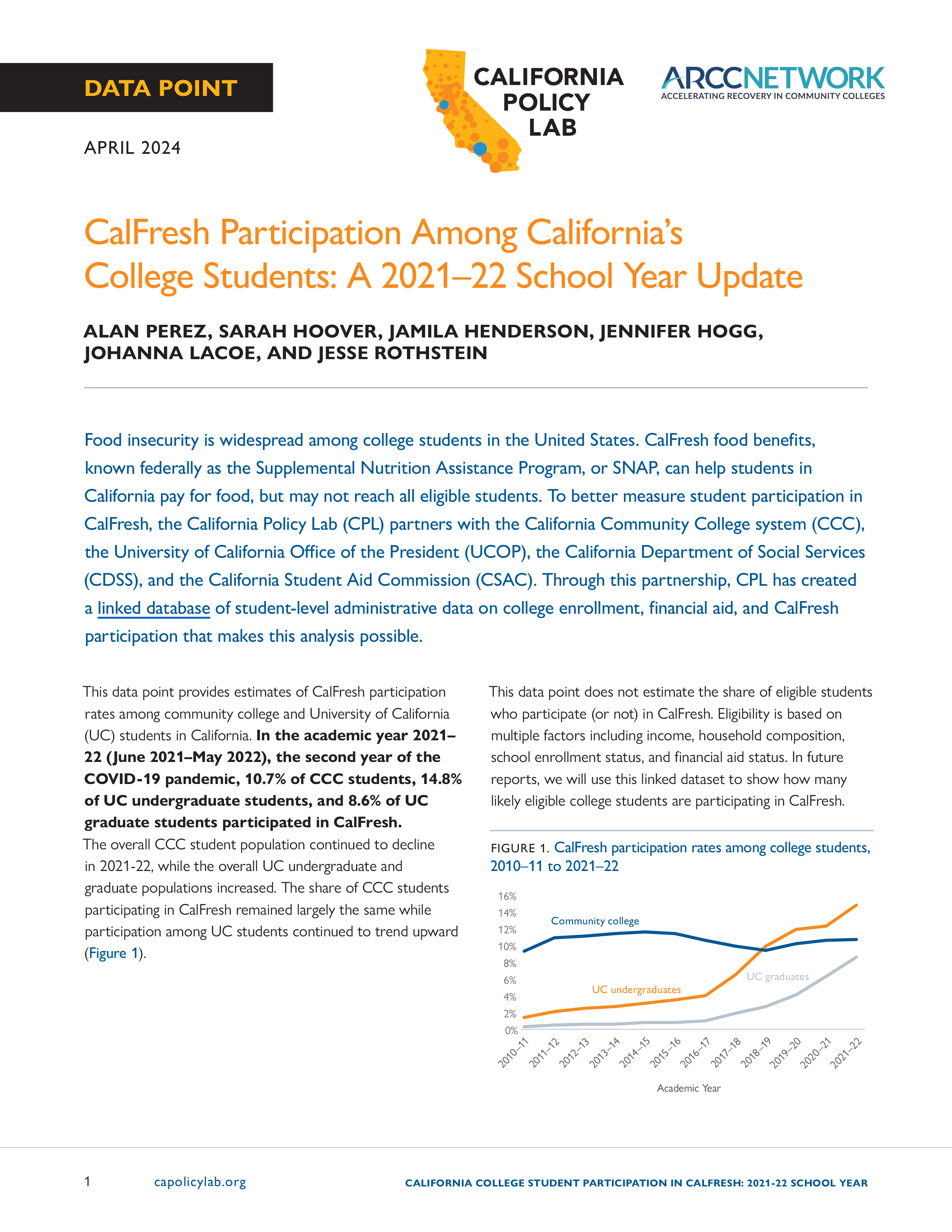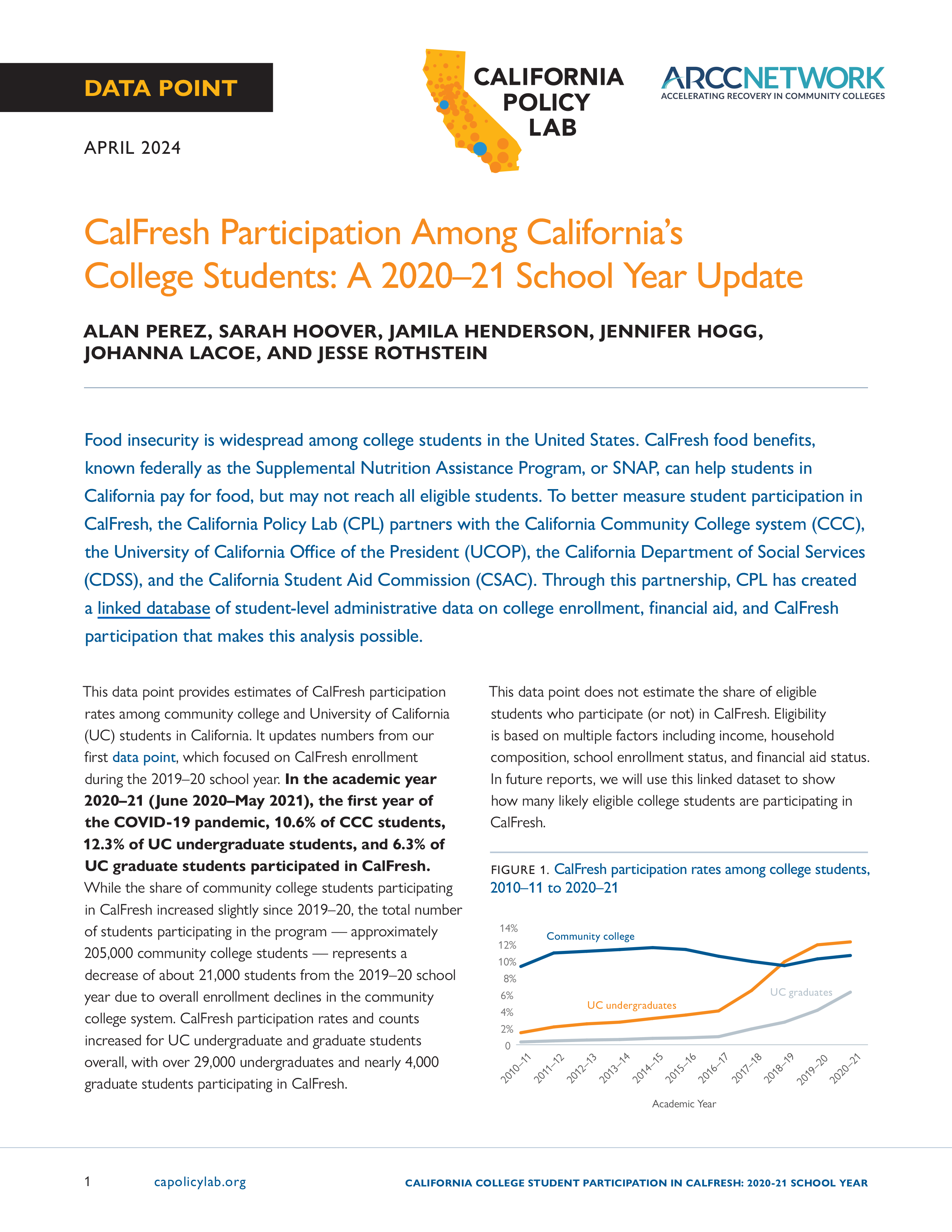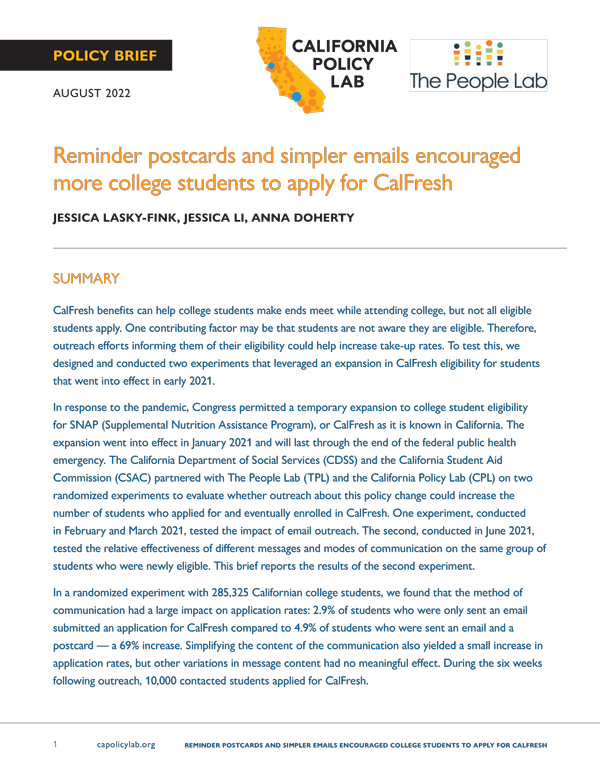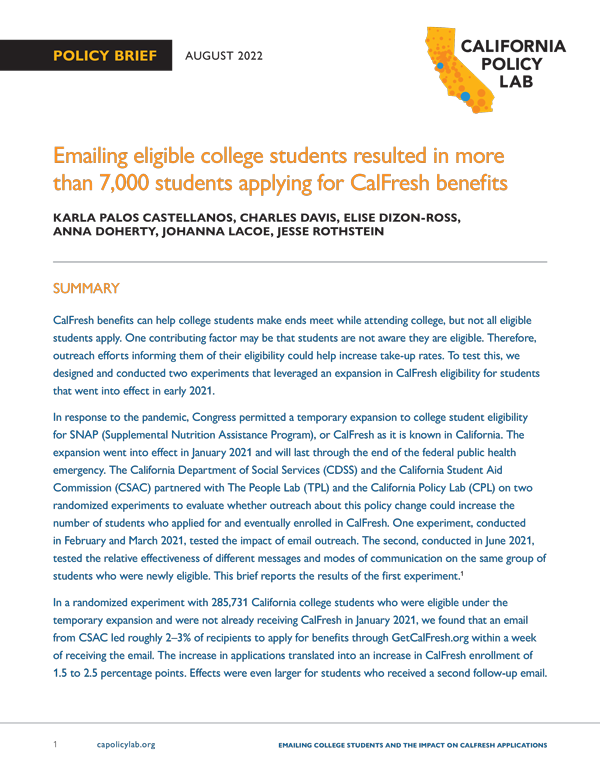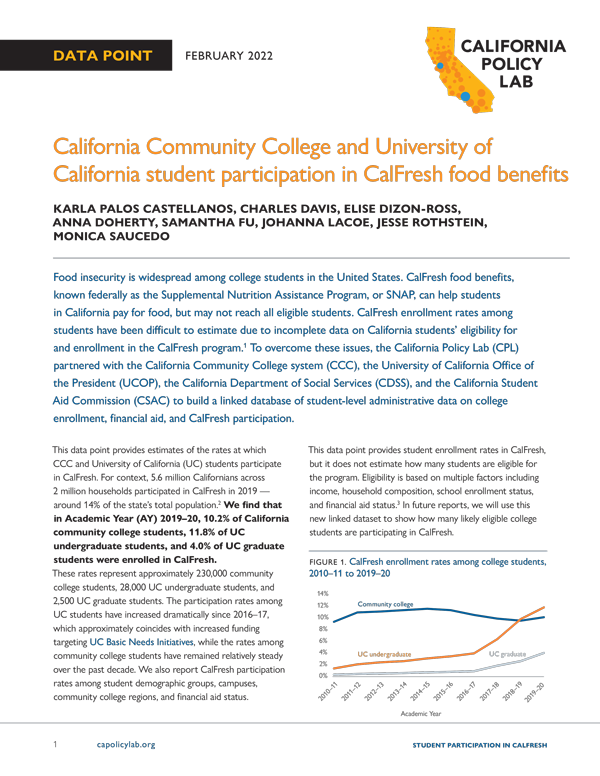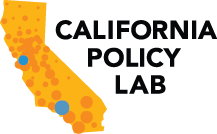Student Supports: The Role of Social Safety-Net Programs in College Student Success
Many students struggling to meet their basic needs are eligible for safety-net programs, but may not be accessing them. Because colleges and universities already work with students on financial aid, they are well-situated to help connect students to safety-net benefits. However, data limitations have been an obstacle to assessing eligibility and then encouraging eligible students to apply and enroll. This project is linking data on college enrollment and outcomes, safety net participation, and FAFSA applications to estimate the number of California college students who participate in safety-net programs, such as CalFresh, and the number of students who are eligible but not participating in these programs. This research will also help shed light on the relationship between participating in safety-net programs and student outcomes, and will inform efforts to develop, pilot, and test strategies for using administrative data to improve outreach to potentially eligible students.
This project links more than a decade of data, including during the COVID-19 pandemic, from the California Student Aid Commission, the California Community Colleges Chancellor’s Office, the University of California Office of the President, and the California Department of Social Services, to create the Student Supports database.
This project is supported by the Spencer Foundation and the Institute of Education Sciences, U.S. Department of Education, through Grant R305A220451 to The Regents of the University of California, Berkeley. For more information on the Student Supports project, visit the California Policy Lab’s website.
Publications
Supporting Young People’s Food Security: CalFresh Participation During and After High School
California Policy Lab | April 2025
This report provides new insights on participation in CalFresh during the final years of high school and the first few years after high school, and the factors that influence whether students continue to receive benefits.
How Much Do College Students Get from CalFresh Each Month?
California Policy Lab | February 2025
This policy brief explores how much university and community college students received in CalFresh benefits each month before and after the start of the pandemic. The authors find that temporary federal policy changes during the pandemic nearly doubled benefit amounts for UC undergraduates and California community college students.
Trends in Community College Enrollment and CalFresh Eligibility During the COVID-19 Pandemic
California Policy Lab | January 2025
This policy brief describes how eligibility for CalFresh changed among community college students because of broader college enrollment changes during the height of the pandemic and due to the temporary eligibility changes Congress made to SNAP.
Many California Community College Students Are Eligible For—But Not Receiving—CalFresh Benefits
California Policy Lab | December 2024
Using a linked database of student-level administrative data on college enrollment, financial aid, and CalFresh participation, this brief estimates how many California community college students are eligible for CalFresh, how many students are taking up those benefits, and how many are missing out.
Filling the Gap: CalFresh Eligibility Among University of California and California Community College Students
California Policy Lab | June 2024
This report links college enrollment and financial aid application data and compares it to CalFresh eligibility rules to create more precise estimates of how many students are likely eligible for CalFresh. The authors pinpoint the eligibility criteria and program rules that appear to have the biggest impact in determining eligibility.
CalFresh Participation Among California’s College Students: A 2021–22 School Year Update
California Policy Lab | April 2024
This data point provides estimates of CalFresh participation rates among community college and University of California students in California.
CalFresh Participation Among California’s College Students: A 2020–21 School Year Update
California Policy Lab | April 2024
This data point provides estimates of CalFresh participation rates among community college and University of California (UC) students in California. It updates numbers from a previous first data point, which focused on CalFresh enrollment during the 2019–20 school year.
Reminder Postcards and Simpler Emails Encouraged College Students to Apply for CalFresh
California Policy Lab | August 2022
This policy brief describes an experiment to test the relative effectiveness of different messages and modes of communication in increasing the number of students who applied for and eventually enrolled in CalFresh.
Emailing College Students and the Impact on CalFresh Applications
California Policy Lab | August 2022
This policy brief describes an experiment to test the impact of email outreach on increasing the number of students who applied for and eventually enrolled in CalFresh.
California Community College and University of California Student Participation in CalFresh Food Benefits
California Policy Lab | February 2022
This data point provides estimates of the rates at which California Community College system and University of California students participate in CalFresh.
Lead Researchers
Jesse Rothstein is the Carmel P. Friesen Chair in Public Policy at UC Berkeley and the faculty director of the California Policy Lab’s UC Berkeley site. Rothstein’s research focuses on education policy and the labor market, with a focus on inequality of opportunity and outcomes. He can be reached at rothstein@berkeley.edu.
Johanna Lacoe is the research director of California Policy Lab’s UC Berkeley site. She is a policy scholar with expertise in criminal and juvenile justice, education, employment, and housing. She can be reached at johanna.lacoe@berkeley.edu.


